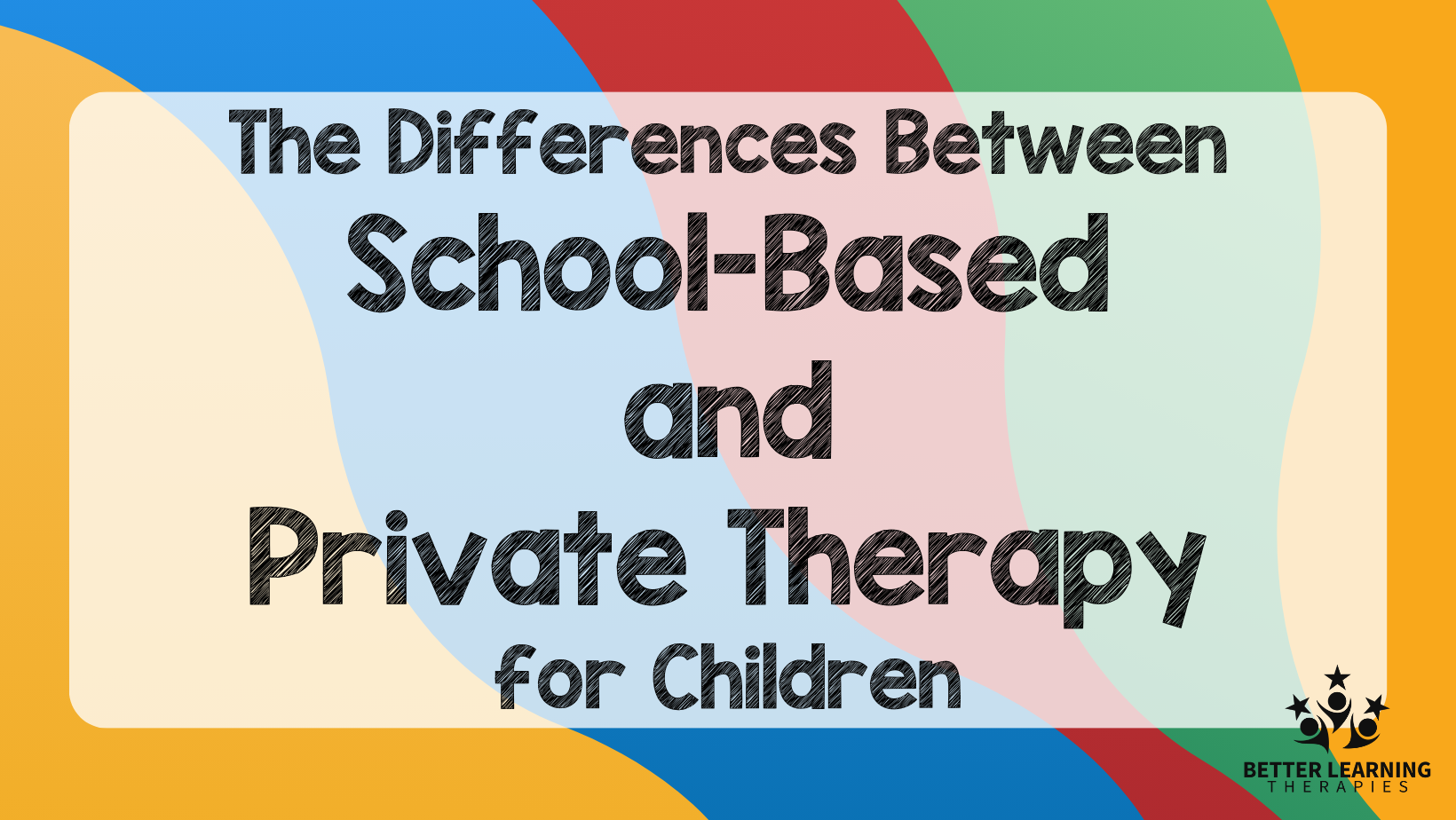The Differences Between School-based and Private Speech Therapy for Children
Speech therapy can be a life-changing experience for children with communication difficulties. If your child is struggling with speech, language, or communication skills, you may be wondering whether school-based or private therapy is the best option. While both options offer valuable support from a certified and licensed speech-language pathologist (SLP), there are some differences that parents should be aware of. In this blog post, we’ll explore the main differences between school-based and private therapy so you can make an informed decision about your child’s care.
Focus of therapy
One of the main differences between school-based and private therapy is the focus of the therapy. In a school setting, speech therapy is focused on communication goals that are relevant to the student's educational needs. This may include academic language skills, classroom communication, and social skills needed to interact with teachers and classmates. Private therapy, on the other hand, can be more tailored to the individual needs and preferences of the child and family. Clinicians may target goals that are important to the child or family, even if they are not academically relevant.
Group vs. individual therapy sessions
Another difference between school-based and private therapy is the type of therapy sessions offered. In a school setting, students may receive therapy in a group setting or one-on-one, depending on their needs and the recommendation of the SLP and the Individualized Education Plan (IEP) team. Group therapy can be beneficial for children who need to work on social communication and interaction skills. Private therapy, on the other hand, is often provided one-on-one. This can be a more comfortable setting for children who are anxious or easily distracted in group settings.
Availability and funding of therapy
School-based therapy is typically provided free of charge to eligible students as part of their individualized education plan (IEP). Private therapy, however, may require out-of-pocket payment or be covered by insurance. Families may also be able to apply for financial assistance or use other funding sources to offset the cost of private therapy. This may make private therapy a more accessible option for families who are unable to access school-based therapy.
Time and frequency of therapy sessions
The frequency of speech therapy sessions can differ between school-based and private therapy as well. School-based therapy is conducted during the school day and may be offered once a week or a few times a month, depending on the student's needs. Private therapy can be more flexible, allowing families to schedule sessions at a time that works best for them. This may be especially useful for families with busy schedules or children who require more frequent or intensive therapy.
Collaboration with other professionals
Finally, collaboration with other professionals can differ between school-based and private therapy. In a school setting, the SLP may work closely with teachers, school psychologists, and other professionals to ensure that the student's communication needs are met in the classroom. Private therapists may also collaborate with other professionals, such as occupational therapists or psychologists, to address the child's broader needs.
Choosing between school-based and private therapy for your child can be a difficult decision. Both options offer valuable support from a certified and licensed SLP. By understanding the main differences between school-based and private therapy, you can make an informed decision about the best approach for your child's unique needs. Whether you choose school-based or private therapy or both, the most important thing is to prioritize your child's communication and language development. With the right support and resources, your child can thrive and reach their full potential.
Many of our speech language pathologists have experience in school based therapy and private practice. We can help you decide what is best for you and your family. Give us a call today! 801.217.3390




